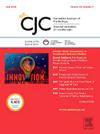Remodelling of T-Tubules and Associated Calcium Handling Dysfunction in Heart Failure: Mechanisms and Therapeutic Insights
IF 5.8
2区 医学
Q1 CARDIAC & CARDIOVASCULAR SYSTEMS
引用次数: 0
Abstract
In cardiomyocytes, transverse tubules (T-tubules) are sarcolemmal invaginations that facilitate excitation-contraction coupling and diastolic function. The clinical significance of T-tubules has become evident in that their remodelling is recognised as a hallmark feature of heart failure (HF) and a key contributor to disrupted Ca2+ homeostasis, compromised cardiac function, and arrhythmogenesis. Further investigations have revealed that T-tubule remodelling is particularly pronounced in HF with reduced ejection fraction (HFrEF), but not in HF with preserved ejection fraction, implying that T-tubule remodelling may play a crucial pathophysiologic role in HFrEF. While research on the functional importance of T-tubules is ongoing, T-tubule remodelling has been found to be reversible. That finding has triggered a surge in studies aimed at identifying specific therapeutic approaches for HFrEF. This review discusses the functional importance of T-tubules and their microdomains, the pathophysiology of T-tubule remodelling, and the potential mechanisms of current HFrEF therapeutic approaches in reversing T-tubule alterations. We also highlight discrepancies regarding the roles of T-tubule proteins in the recovery process across studies to offer valuable insights for future research.

心力衰竭中 T 型微管的重塑及相关的钙处理功能障碍:机制与治疗启示
在心肌细胞中,横小管(T-tubules)是促进兴奋-收缩耦合(ECC)和舒张功能的肌浆内陷。T形小管的重塑被认为是心力衰竭(HF)的标志性特征,也是导致钙离子平衡失调、心脏功能受损和心律失常发生的关键因素,因此其临床意义显而易见。进一步的研究发现,T-微管重塑在射血分数降低的心力衰竭(HFrEF)中尤为明显,而在射血分数保留的心力衰竭(HFpEF)中则不明显,这意味着T-微管重塑可能在HFrEF中扮演着重要的病理生理角色。由于 T 型微管的复杂性,有关其功能重要性的研究仍在进行中,但人们发现 T 型微管重塑是可逆的。这一发现引发了旨在确定心房颤动缺氧特定治疗方法的研究热潮。本综述讨论了 T 型微管及其微域的功能重要性、T 型微管重塑的病理生理学以及当前高频脑衰竭治疗方法逆转 T 型微管改变的潜在机制。我们还强调了不同研究中有关 T-微管蛋白在恢复过程中的作用的差异,从而为未来的研究提供有价值的见解。
本文章由计算机程序翻译,如有差异,请以英文原文为准。
求助全文
约1分钟内获得全文
求助全文
来源期刊

Canadian Journal of Cardiology
医学-心血管系统
CiteScore
9.20
自引率
8.10%
发文量
546
审稿时长
32 days
期刊介绍:
The Canadian Journal of Cardiology (CJC) is the official journal of the Canadian Cardiovascular Society (CCS). The CJC is a vehicle for the international dissemination of new knowledge in cardiology and cardiovascular science, particularly serving as the major venue for Canadian cardiovascular medicine.
 求助内容:
求助内容: 应助结果提醒方式:
应助结果提醒方式:


